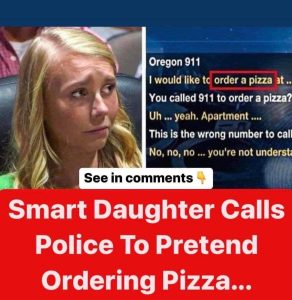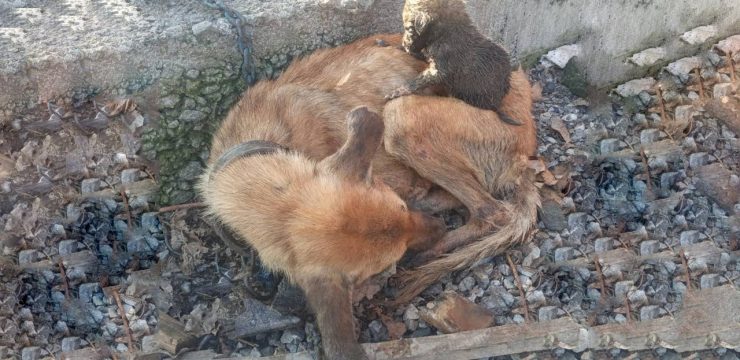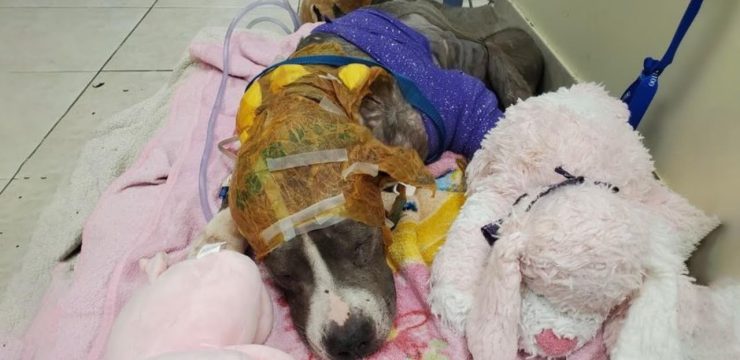A woman in Florida found herself in an incredibly dangerous situation but received help from an unexpected source—a local Pizza Hut.
According to WFLA, Cheryl Treadway managed to escape a terrifying hostage ordeal thanks to her cell phone and a quick-thinking Pizza Hut employee.
On May 4, 2015, in Highlands County, Florida, Treadway was being held against her will inside her home by her boyfriend, Ethan Nickerson. He was armed with a knife and had been threatening her and her children. In a desperate attempt to get help, Treadway used the Pizza Hut mobile app on her phone to place an order for a small, hand-tossed pepperoni pizza. However, it wasn’t the pizza order that caught the attention of the restaurant’s staff—it was the distressing message she included with it.

Along with her order, Treadway typed a plea for help, notifying the Pizza Hut employees that she was being held hostage and urgently needed assistance. The message was simple but chilling. Recognizing the gravity of the situation, the employees acted swiftly, immediately alerting law enforcement.
Police officers were quickly dispatched to Treadway’s home, where they arrived to find her and her children trapped in a volatile situation. With officers on the scene, they were able to safely remove Treadway and her children and take Nickerson into custody without further incident.
While Treadway and her children survived the ordeal unharmed, her experience sheds light on a much larger issue—domestic violence. Every year, millions of individuals find themselves in abusive relationships with seemingly no way out. According to statistics from the National Coalition Against Domestic Violence, one in three women and one in four men will experience some form of physical violence at the hands of a current or former partner during their lifetime.
While Treadway’s resourcefulness and the quick response from the Pizza Hut employees and law enforcement resulted in a positive outcome, many others are not as fortunate. Domestic violence situations can escalate rapidly, and not all victims have the opportunity or ability to seek help.
Treadway’s story brings to mind a powerful public service announcement against domestic violence that aired during the Super Bowl that same year. In the ad, a woman pretends to order a pizza over the phone but is actually calling 911 for help. Though the dispatcher initially seems confused, he quickly picks up on the woman’s coded message and sends officers to her location.
The PSA, created by No More, an organization dedicated to ending domestic violence and sexual assault, aimed to raise awareness about the often subtle and hidden ways victims seek help. While No More itself has faced criticism over the years, the message of the campaign remains crucial—domestic violence is a widespread issue, and victims often use unconventional methods to escape their situations.
The scenario depicted in the ad isn’t just a dramatization. Similar incidents have occurred in real life. In one instance, a 911 operator shared on Reddit how they once received a call from a woman pretending to order pizza. Recognizing that something was off, the operator asked yes-or-no questions and was able to send help.
For those experiencing domestic violence, finding a safe way to reach out is often one of the biggest hurdles. The National Domestic Violence Hotline provides a wide range of resources for individuals in abusive situations, including a safety planning tool that can be invaluable for those seeking a way out.
This tool offers guidance on various safety plans, including how to leave an abusive relationship, legal protections available to survivors, and ways to stay safe while still in a dangerous environment. It also provides advice for friends and family members who may suspect a loved one is in an abusive situation and want to help.
For those who have never experienced domestic violence, it might seem obvious that someone in an abusive relationship should just leave. However, the reality is far more complex. Many victims are financially dependent on their abuser, fear retaliation, or worry about the safety of their children. Others may feel emotionally trapped or manipulated, believing there is no viable escape.
This is why it’s essential that emergency responders, law enforcement officers, and even everyday people recognize the signs of abuse and take them seriously. Something as simple as paying close attention to a subtle cry for help can make all the difference.
Treadway was fortunate that the Pizza Hut staff did not dismiss her message as a joke. Had they ignored it, the situation could have ended in tragedy. The same applies to the 911 operator in the PSA—if he had simply hung up, the caller could have been left in grave danger.
These incidents serve as a sobering reminder that distress signals don’t always come in obvious forms. Not every cry for help will be as clear as a direct call to 911. Sometimes, a victim may be reaching out in a way that is subtle, coded, or easily overlooked.
Fortunately, there are those who pay attention, those who take the time to listen and act when something seems off. It is because of individuals like the Pizza Hut employees and alert emergency responders that lives are saved.
In today’s world, where domestic violence remains a pressing issue, we should all strive to be more observant and responsive to signs of distress. It’s easy to assume that someone else will step in, but that assumption can cost lives.
Stories like Treadway’s should remind us of the importance of staying aware, trusting our instincts, and acting when we suspect someone is in danger. Whether it’s a cryptic message in a pizza order or an unusual phone call, the ability to recognize and respond to warning signs can mean the difference between life and death.
While we may not all be in positions to directly intervene in dangerous situations, we can support organizations working to combat domestic violence. Donating to shelters, advocating for stronger protections for survivors, and educating ourselves on the issue are all ways we can contribute.
At the end of the day, awareness and action save lives. And sometimes, a simple pizza order can be the lifeline that changes everything.





